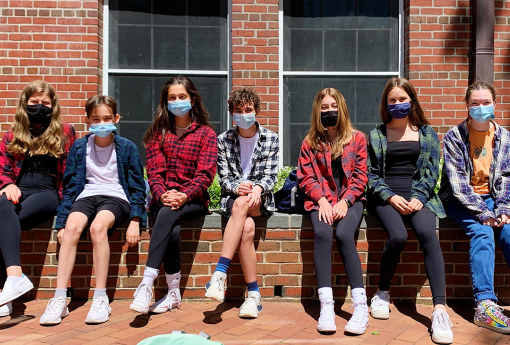
Growing Minds: Playing Favorites
October 21, 2019
A couple of days ago, needing to buy a present for a family member who’s in middle school, I asked some sixth and seventh-grade students in the hallway what their favorite board game was. They froze.
Not because I’m scary or because they don’t like board games, (I’m not and they do) but because the absolute necessary to respond to “what’s your favorite…” is unbearable. I should know this.
For many, many years as a classroom teacher, I took attendance by asking a question. Not “Are you here?” but one for which each child might have a different answer. “What would you name a pet if you got one tomorrow?” “What’s the last thing you ate?” “What was your most beloved stuffed animal as a kid?” Early on, “What’s your favorite” questions seemed like natural choices. “What’s your favorite color… movie… food?” But these questions send middle schoolers into the outer reaches of “panicdom.” I quickly learned to rephrase those questions: “What’s one of your favorite fruits?” “What is a book that you love a lot?” or, one of my favorites because kids get really passionate about it: “What’s one of your least favorite candies?”
Middle schoolers have strong opinions and aren’t afraid to let you know them. But I don’t think they want to be pinned down to a “favorite” anything because they are too aware that if you say that out loud, you might be stuck there. When I reframed my question—“What are some really good games?”—the kids bubbled over with responses. They were inspired by each other’s answers, built upon them, debated the merits of short games vs. long games, card games vs. board games, and within five minutes I had a fantastic list to pursue. I knew middle schoolers were the ones to ask.

In these exploratory years, adolescents try on ideas like outfits, and a rigid style is nobody’s goal. This is precisely why the nuanced discussions that happen in our middle school are some of the most exciting moments of the day. Our students learn how to explore ideas, their own and their peers’, in all sorts of discussion models that allow them to shape and reshape opinions, gather evidence, and imagine others’ perspectives.
In sixth grade, a recent structured discussion about the efficacy of grades involved students developing competing and compelling arguments—both for and against traditional grades—articulately presented and fully supported by evidence. In seventh grade pre-algebra, students investigated multiple approaches to solving the same problem and erupted in celebration when a student, following her own path, came to the answer they all sought. In eighth grade science, students tried to envision the shape of a hidden object just by using their sense of sound, which led to a discussion of how early scientists imagined the atomic world they could not see. In each of these moments, students adjusted their perceptions throughout the learning process. This practice, in turn, reinforced flexibility and perseverance: two valuable skills for 21st-century success.
A stereotypical hallmark of early adolescence is stubbornness. But I would argue that middle schoolers are actually much more comfortable with changing their minds than some think. Of course, this can lead us to worries about the dangers of being swayed by peer pressure (probably a good subject for another piece of writing) but I think that in the academic realm, it means sixth through eighth-graders can take on the true challenge of exploring new ideas. Wheeler’s multifaceted, interdisciplinary, rigorous, curiosity-based curriculum is a natural fit for these curious middle-grade kids. Their minds reach a new level of sophistication while staying supremely flexible. Middle schoolers aren’t locked in to a favorite subject or a favorite idea or a favorite approach. In these years, they move comfortably beyond the concrete. And this is why middle schoolers are my favorite.
By Vanessa O’Driscoll
Middle School Director
Growing Minds is the periodic blog about Grades Nursery – 8 at Wheeler

